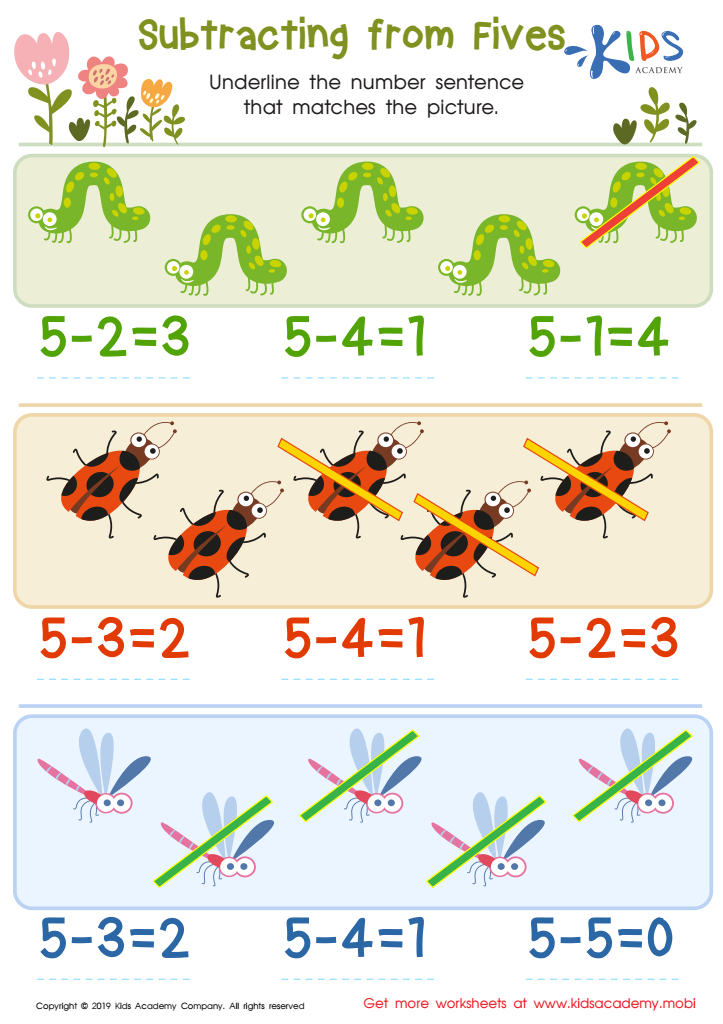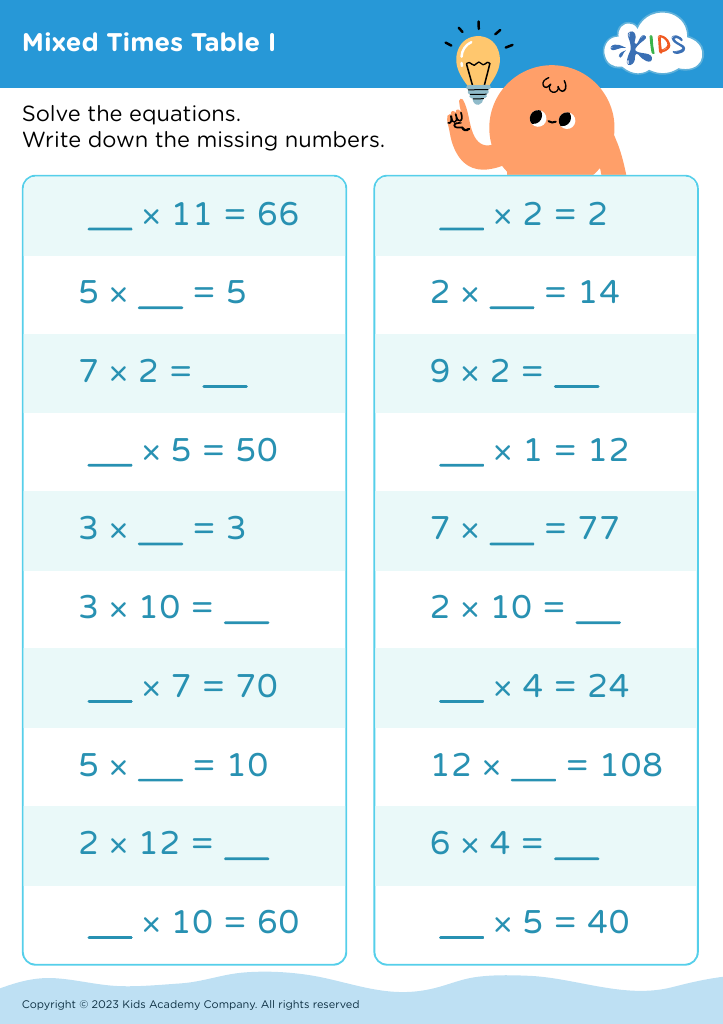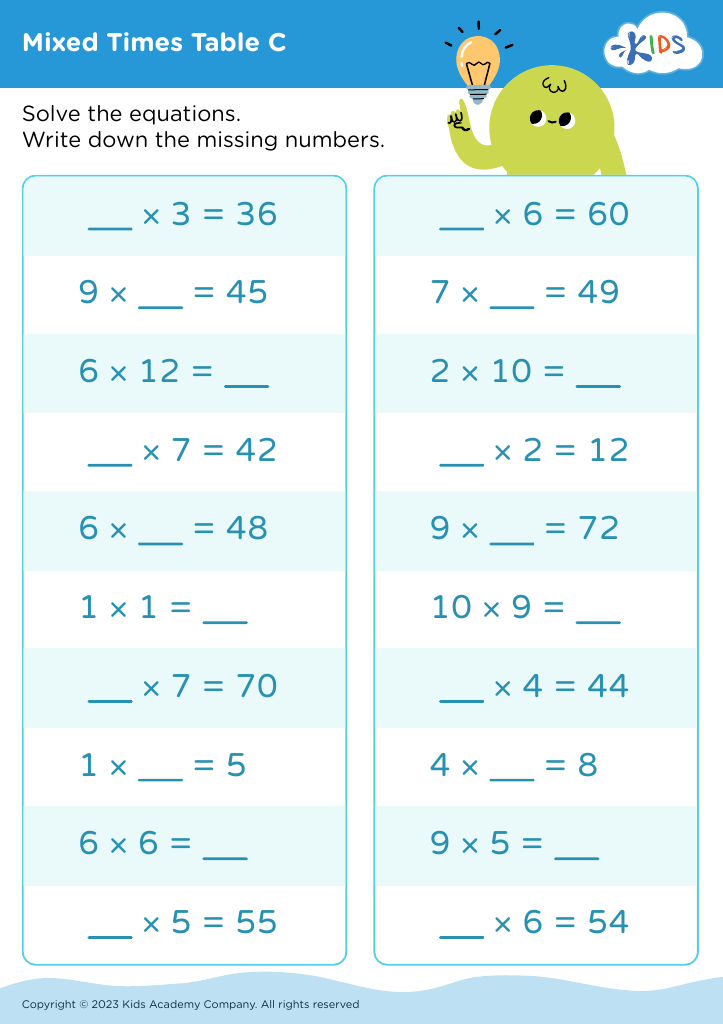Math fact fluency Extra Challenge Worksheets for Ages 3-8
3 filtered results
-
From - To
Unlock your child's math potential with our Math Fact Fluency Extra Challenge Worksheets designed for ages 3 to 8! These engaging and interactive worksheets encourage young learners to master essential math skills through fun, age-appropriate challenges. Ideal for honing addition, subtraction, and early arithmetic concepts, our worksheets foster confidence and a love for math. Parents and educators can find creative ways to adapt these activities for diverse learning styles, ensuring every child can succeed. Perfect for extra practice at home or in the classroom, these resources cater to curious minds and set the foundation for a lifetime of mathematical understanding!


Subtracting From Fives Worksheet
Math fact fluency is a crucial foundational skill for children aged 3-8, impacting their overall academic success and confidence in mathematics. Parents and teachers should care deeply about fostering this skill for several reasons.
First, fluency in basic math facts—such as addition, subtraction, multiplication, and division—enables young learners to perform calculations more efficiently and accurately. This proficiency is essential not only for mastering more complex mathematical concepts but also for daily problem-solving in real-life situations.
Second, developing math fact fluency encourages a positive attitude toward math. Children who feel competent in basic skills are more likely to embrace new challenges, participate actively in class discussions, and pursue further learning opportunities.
Additionally, early practice promotes cognitive development, enhancing memory and critical thinking skills. Engaging with math facts through playful activities, games, and challenges can make learning enjoyable, fostering a lifelong love for math.
Furthermore, building a strong mathematical foundation can help close achievement gaps, ensuring all children have equal opportunities for success. Thus, an emphasis on math fact fluency benefits not only individual learners but also supports broader educational equity and community growth. By prioritizing this aspect of early education, we invest in our children's futures.

 Assign to My Students
Assign to My Students


















